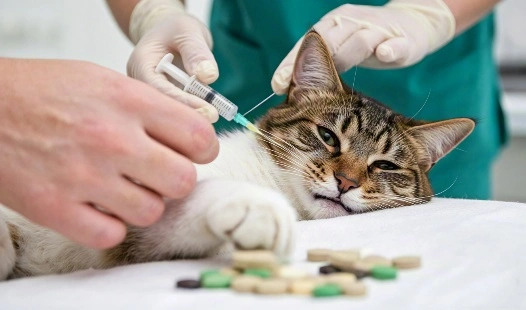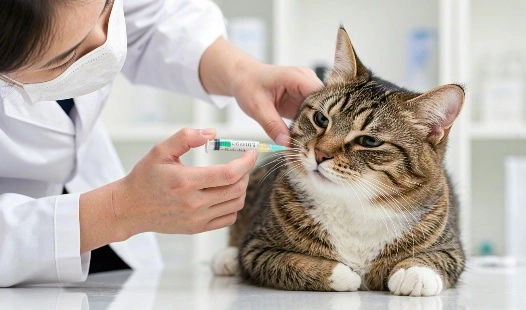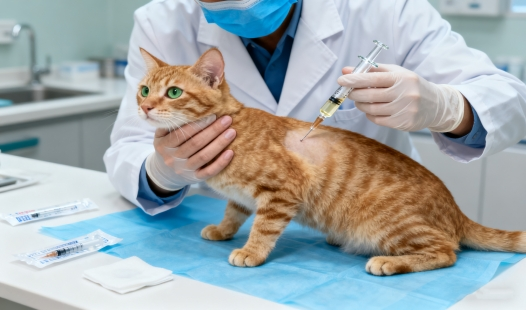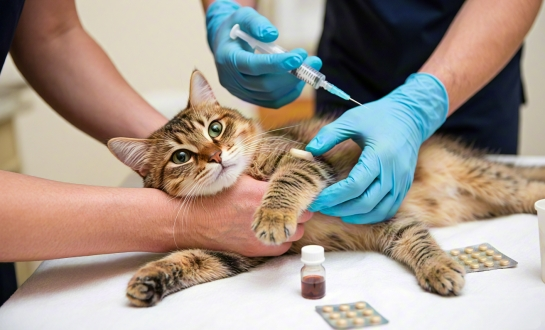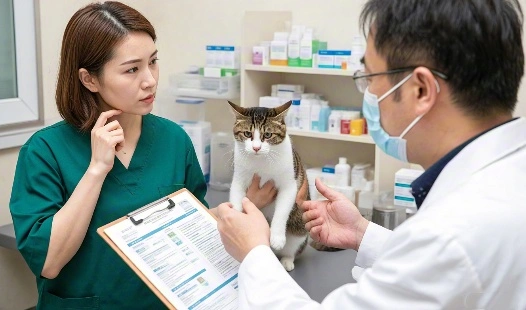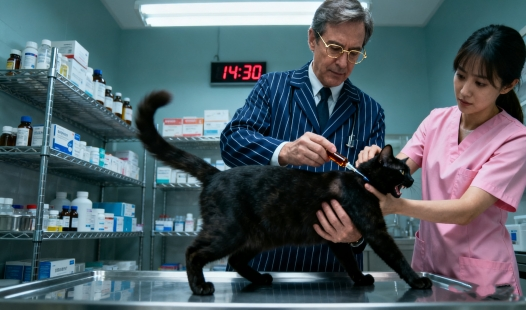Does FIP go away?
Understanding FIP Remission vs. Cure
The complicated and sometimes misunderstood condition known as Feline Infectious Peritonitis (FIP) affects cats all over the globe. Advances in veterinary care have given hope to both cat owners and veterinarians, despite the fact that this condition was once thought to be fatal for felines. My question is this: will FIP ever really disappear?
|
|
|
|
Understanding FIP Remission vs. Cure
To address this question, it's crucial to understand the distinction between remission and cure when it comes to FIP. Remission refers to a temporary reduction or disappearance of symptoms, while a cure implies the complete eradication of the disease.
FIP Remission
Remission refers to the period during which the symptoms of FIP subside or disappear, often with the help of antiviral treatment. With GS-441524, many cats have shown significant improvements in their condition, with symptoms such as fever, loss of appetite, and lethargy fading. Remission indicates that the cat is not actively showing symptoms, but the virus may still be present at low levels within the body. This state requires continued monitoring and sometimes prolonged treatment to maintain the absence of symptoms.
FIP Cure
A cure, on the other hand, implies that the virus has been eradicated entirely from the cat's system. While GS-441524 has shown high success rates in inducing remission, whether it can achieve a true cure is still under investigation. For some cats, long-term remission may eventually result in the virus being cleared from the body, but this is not guaranteed. Some cases may relapse even after extended periods of remission, indicating that a full cure has not been achieved.
The Role of GS-441524 in FIP Treatment
GS-441524 has been groundbreaking in offering relief to cats diagnosed with FIP, especially those in the early stages of the disease. The treatment works by inhibiting viral replication, significantly reducing viral load and preventing further damage to the organs. However, despite its success in remission, the question of whether it can fully cure FIP remains complex and is still under study.
Long-Term Monitoring and Post-Treatment Care
After a cat achieves remission through treatment with GS-441524, long-term follow-up is crucial. This involves regular veterinary check-ups and possibly continuing a low-dose antiviral regimen to prevent relapse. It’s essential for cat owners to understand that while remission is a positive outcome, it does not always equate to a complete cure, and ongoing vigilance is necessary.
|
|
|
|
Factors affecting FIP resolution
Early diagnosis and intervention
The timing of diagnosis and treatment initiation plays a crucial role in determining the outcome of FIP cases. Cats diagnosed and treated during the earlier stages of the disease generally have a much better prognosis compared to those who are already exhibiting severe or advanced symptoms. Early intervention allows veterinarians to start antiviral therapy before extensive organ damage occurs, improving the chances of remission. Regular monitoring of feline health, including paying close attention to subtle symptoms like reduced appetite, lethargy, or intermittent fever, can help detect FIP sooner. For owners, seeking veterinary advice at the first sign of illness is critical to ensuring timely care and a more favorable recovery.
Proper treatment protocol
Adhering to the recommended treatment protocol is vital for achieving remission in cats diagnosed with FIP. This typically involves a prolonged course of antiviral medication, often lasting 12 weeks or even longer, depending on the severity of the disease and the cat's response. Consistency in administering the correct dosage and avoiding missed treatments are key to maximizing the effectiveness of therapy. Veterinarians often monitor cats closely during the course, adjusting the dosage if needed based on weight changes or clinical response. Completing the full treatment regimen, even if the cat appears to have improved earlier, is essential for preventing relapse and ensuring long-term success.
Individual cat factors
Each cat's response to treatment can vary significantly based on several individual factors, including age, overall health, immune system strength, and the specific form of FIP (wet or dry). Younger cats, particularly those under two years of age, often respond more favorably to therapy, as their bodies are generally better able to cope with treatment. Similarly, cats with fewer complications or less severe organ involvement have a higher likelihood of recovery. On the other hand, older cats or those with concurrent illnesses may face more challenges during treatment. Understanding these individual differences helps veterinarians tailor treatment strategies and provide a realistic prognosis for each case.
|
|
|
Long-term outlook for FIP survivors
Monitoring for relapse
While many cats achieve remission and are able to lead normal, healthy lives after completing FIP treatment, the possibility of relapse remains a significant concern for both veterinarians and pet owners. Relapse can occur weeks or even months after the end of therapy, making it essential to remain vigilant. Regular veterinary check-ups, including physical examinations, blood tests, and imaging when necessary, play a critical role in detecting any recurrence of the disease at an early stage. Owners should also watch closely for subtle changes such as lethargy, appetite loss, or unexplained fever, as these may be early warning signs. Consistent monitoring ensures that if relapse occurs, treatment can be restarted quickly, improving the chances of another successful remission.
Quality of life post-treatment
Cats that successfully complete treatment and reach remission often experience a dramatic improvement in their overall quality of life. Many return to their normal daily activities, including playful behaviors, regular grooming, and strong interactions with their human companions. Weight that may have been lost during illness is gradually regained, and muscle tone and energy levels improve. The renewed vitality observed in these cats is not only rewarding for owners but also an encouraging sign of the treatment's success. Long-term survivors frequently enjoy lifespans comparable to healthy cats, provided that supportive care, proper nutrition, and routine veterinary check-ups are maintained. This recovery reinforces the life-changing potential of modern antiviral therapies for FIP.
Ongoing research and future prospects
The field of FIP treatment is evolving rapidly, with ongoing research into new antiviral compounds, refined dosing strategies, and even the possibility of vaccines. These advancements provide hope that future therapies may be more accessible, affordable, and effective in preventing relapse or achieving permanent cures. Clinical trials are continuing to investigate alternative drug formulations, including oral versions of antivirals like GS-441524, which could make treatment easier for both cats and their owners. Furthermore, the pursuit of vaccines offers long-term optimism for preventing the disease altogether. As veterinary science progresses, the future looks brighter for FIP survivors and for the global fight against this once invariably fatal condition.
|
|
|
|
Conclusion
While FIP may not completely "go away" in the sense of a permanent cure, the outlook for cats diagnosed with this once-fatal disease has improved dramatically. With early intervention, proper treatment protocols, and ongoing monitoring, many cats can achieve long-term remission and live fulfilling lives.
The use of antivirals like GS-441524 Tablets has revolutionized FIP treatment, offering a lifeline to cats and their owners. However, it's important to approach FIP management with realistic expectations and a commitment to ongoing care.
FAQ
Q1: Can cats fully recover from FIP?
A1: While complete recovery or cure is not guaranteed, many cats can achieve long-term remission with proper treatment. The success rate varies, but some studies report remission rates of up to 80% in treated cats.
Q2: How long does FIP treatment typically last?
A2: The standard treatment protocol for FIP usually lasts around 12 weeks. However, some cats may require longer treatment periods depending on their response and the severity of their condition.
Q3: Are there any side effects associated with FIP treatments?
A3: While generally well-tolerated, some cats may experience mild side effects such as temporary discomfort at injection sites or gastrointestinal upset. Serious side effects are rare but should be monitored and reported to a veterinarian.
Your Cat's Lifeline – Get Started
Do not give up hope if your kitty friend has been diagnosed with FIP. We at BLOOM TECH are familiar with the difficulties of dealing with this complicated illness. Consistency and purity are guaranteed in every dose of our high-quality GS-441524 Tablets because they are manufactured under strict GMP conditions.
Our company has been dedicated to providing veterinarians and cat owners with dependable and effective treatment choices for over ten years, specialising in organic synthesis and pharmaceutical intermediates. Our goods have been trusted by 24 well-known multinational firms, including top pharmaceutical and research organisations, as a recognised GS-441524 manufacturer.
Take the first step towards giving your cat a fighting chance against FIP. Contact our professional team today for personalized support and clear pricing information. Email us at Sales@bloomtechz.com to learn more about how our products can support your cat's journey to remission.
References
1. Pedersen, N.C. (2019). "Feline Infectious Peritonitis: A Review of Recent Advances in Diagnosis and Treatment." Journal of Feline Medicine and Surgery, 21(5), 421-438.
2. Murphy, B.G., et al. (2020). "Treatment of Cats with Feline Infectious Peritonitis with the Nucleoside Analog GS-441524." Animals, 10(3), 384.
3. Addie, D.D. (2021). "Feline Infectious Peritonitis: Progress in Diagnosis and Treatment." Veterinary Record, 188(7), 259-260.
4. Hartmann, K., et al. (2022). "ABCD Guidelines on Feline Infectious Peritonitis." Journal of Feline Medicine and Surgery, 24(1), 71-92.

Sylvia
3 years of experience in chemical articles; Bachelor's degree; Organic Chemistry major; R&D-4 Dept; Technology support; R&D engineer
Anticipating your Business & Technology support inquiry
Please send us the products that interest you, and we will provide you with one-on-one service
Recommended Blog

GS-441524 Injection Pricing Revealed: A Comparison of Brands and Suppliers
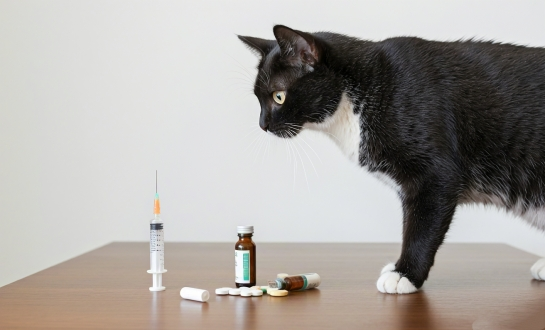
GS-441524 Injections vs. Tablets: Which is More Cost-Effective?
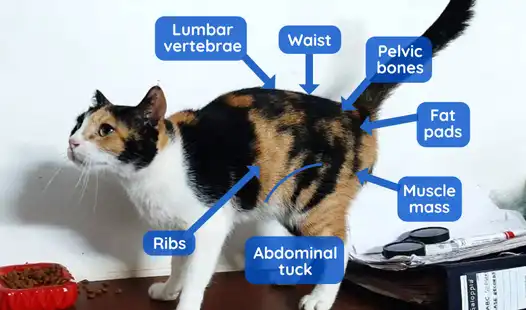
Life After FIP: Long-Term Care for Your Cat Post-GS-441524 Treatment













